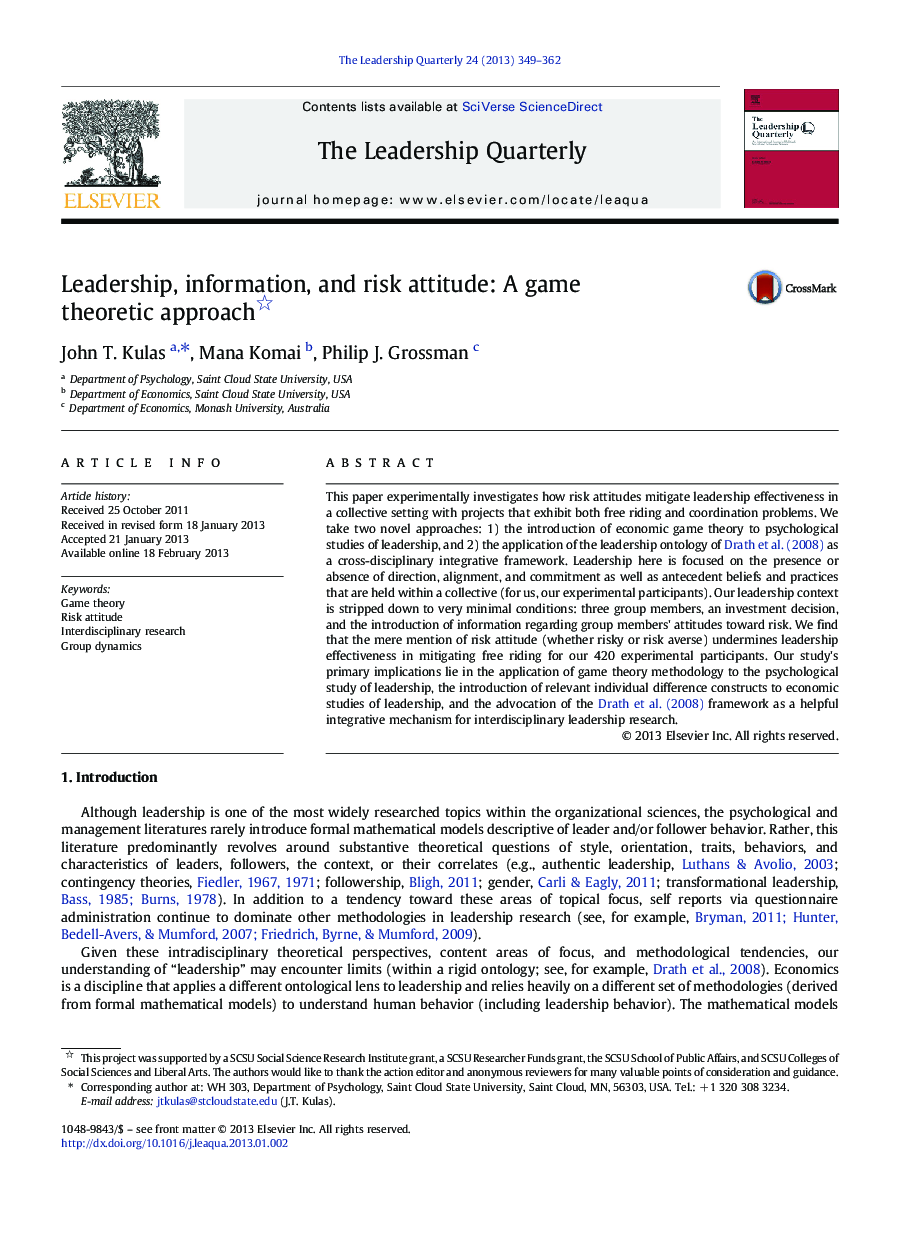| Article ID | Journal | Published Year | Pages | File Type |
|---|---|---|---|---|
| 887735 | The Leadership Quarterly | 2013 | 14 Pages |
This paper experimentally investigates how risk attitudes mitigate leadership effectiveness in a collective setting with projects that exhibit both free riding and coordination problems. We take two novel approaches: 1) the introduction of economic game theory to psychological studies of leadership, and 2) the application of the leadership ontology of Drath et al. (2008) as a cross-disciplinary integrative framework. Leadership here is focused on the presence or absence of direction, alignment, and commitment as well as antecedent beliefs and practices that are held within a collective (for us, our experimental participants). Our leadership context is stripped down to very minimal conditions: three group members, an investment decision, and the introduction of information regarding group members' attitudes toward risk. We find that the mere mention of risk attitude (whether risky or risk averse) undermines leadership effectiveness in mitigating free riding for our 420 experimental participants. Our study's primary implications lie in the application of game theory methodology to the psychological study of leadership, the introduction of relevant individual difference constructs to economic studies of leadership, and the advocation of the Drath et al. (2008) framework as a helpful integrative mechanism for interdisciplinary leadership research.
